#mardik Martin
Photo

#Raging Bull#Robert De Niro#Martin Scorsese#Jake LaMotta#Joseph Carter#Peter Savage#Paul Schrader#Mardik Martin#VHS#80s
24 notes
·
View notes
Photo

Raging Bull - Martin Scorsese (1980)
Poster Design by P A P E R 8.
Buy poster here / https://www.paper8apparel.com
#raging bull#martin scorsese#1980#1980s#boxe#poster#poster design#paper 8#robert de niro#joe pesci#cathy moriarty#jake lamotta#paul schrader#mardik martin#frank vincent#nicholas colasanto#john turturro#united artists#usa#michael chapman
5 notes
·
View notes
Text
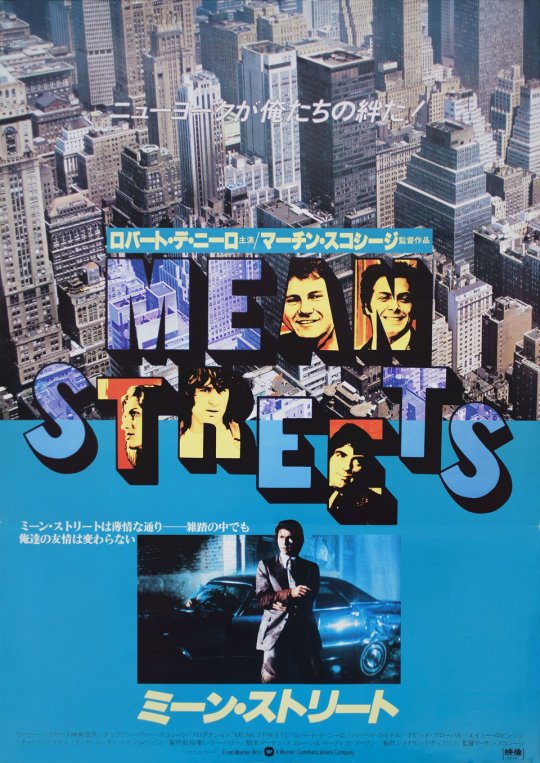
THE FILM THAT PUT SCORSESE ON THE PROVERBIAL MAP -- ARRIVED IN NIPPON NEARLY A DECADE LATER.
PIC INFO: Spotlight on a rare 1980 movie poster design for 1973's "Mean Streets," the Martin Scorsese crime drama classic w/ Robert De Niro & Harvey Keitel (this was the film's first Japanese theatrical release).
MINI-OVERVIEW: "Celebrated as one of the most original American films of all time, Martin Scorsese’s "Mean Streets" holds a firm place among the best crime films we ever had the pleasure of seeing. It’s not easy to pinpoint what exactly makes it so damn good — whether it’s the memorable Keitel-De Niro on-screen collaboration, master Scorsese’s direction or the screenplay Scorsese wrote with his fellow student and frequent writing partner Mardik Martin — but it hardly matters anyway. It’s definitely one of the cinematic high points of the 70s and, as Ebert put it, "one of the source points of modern movies.""
-- CINEPHILIA & BEYOND, "The Impact of Martin Scorsese's "Mean Streets""
Sources: https://posteritati.com/poster/18521/mean-streets-original-1980-japanese-b2-movie-poster & Cinephilia & Beyond (blog).
#Mean Streets#Mean Streets 1973 Movie#Mean Streets Movie#Martin Scorsese#New York City#Mean Streets 1973#1970s#Typography#Filmmaking#American New Wave#New Hollywood#NYC#Crime Drama#Crime Films#70s Cinema#Japanese Movie Poster#Movie Posters#Posters#Poster Art#Poster Design#Graphic Design#1980#1980s#80s#Mean Streets Movie 1973#70s Movies#American Style#Poster#Crime Movies#Graphic Art
17 notes
·
View notes
Text
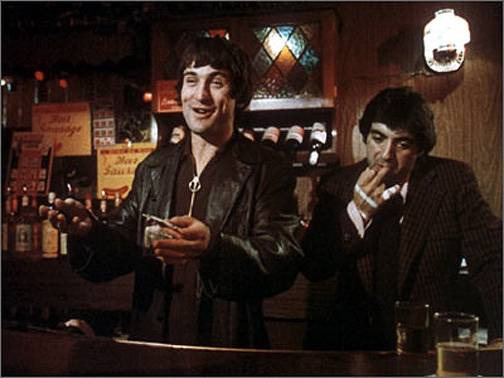
Receiving permission to use the songs in the film cleared up approximately half of the overall movie budget.
This was the first collaboration between Scorsese and De Niro.
A lot of the movie is actually shot in Los Angeles, because the budget was low and they couldn’t afford to shoot all of it in New York.
Scorsese based the character Johhny Boy (De Niro) on his Uncle, who was often in trouble with the law.
Scorsese and Mardik Martin wrote the script as they drove around in Little Italy neighbourhoods.
The scene in which Amy Robinson has a fit took 22 takes to get right.
When it was released (1973) it held the then-record for the most amount of times the word ‘fuck’ was used.
6 notes
·
View notes
Text
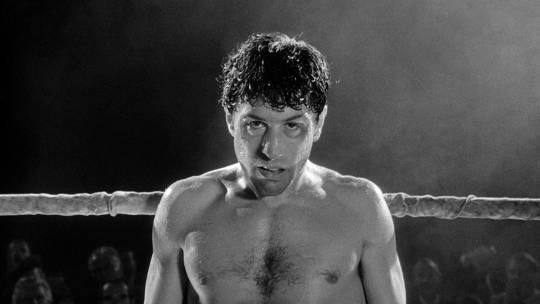
Robert De Niro in Raging Bull (Martin Scorsese, 1980)
Cast: Robert De Niro, Cathy Moriarty, Joe Pesci, Frank Vincent, Nicholas Colasanto, Theresa Saldano, Mario Gallo, Frank Adonis. Screenplay: Paul Schrader, Mardik Martin, based on a book by Jake LaMotta, Joseph Carter and Peter Savage. Cinematography: Michael Chapman. Film editing: Thelma Schoonmaker.
Lots of people think Raging Bull is a great film. The American Film Institute in 2007 ranked it No. 4 in its list of 100 best American movies, behind Citizen Kane (Orson Welles, 1941), The Godfather (Francis Ford Coppola, 1972), and Casablanca (Michael Curtiz, 1942). The 2022 Sight and Sound directors' poll of the greatest films of all time placed it at No. 22, in a tie with Mulholland Dr. (David Lynch, 2001), Pather Panchali (Satyajit Ray, 1955), and The Battle of Algiers (Gillo Pontecorvo, 1966). It is certainly an accomplished film: Michael Chapman's cinematography uses black and white in ways that hadn't been seen since color came to dominate filmmaking in the 1950s; Scorsese and his editor, Thelma Schoonmaker, accomplish wonders, especially with the fight sequences and the occasional eruptions of violence; the set decoration by Phil Abramson, Frederic C. Weiler, and Carl Biddiscombe evokes the shabby milieu and its changes over the decades convincingly; and the performances of then-unknowns Joe Pesci and Cathy Moriarty made them into overnight sensations. And then there's probably Robert De Niro's greatest performance, which won him a best actor Oscar. The film critic Mick LaSalle likes to categorize Oscar acting nominations as either "transformations" or "apotheoses." In the former, actors create new images for themselves, while in the latter, they simply take their existing images and raise them to newly vivid heights. But in Raging Bull De Niro does both: He transforms himself into both the self-destructive young boxer Jake LaMotta and the bloated older LaMotta, living on his long-ago laurels, but he also brings something new and more intense to the existing image of De Niro as a fiercely inward actor. For these reasons, I think, the film makes many lists of the greatest films of all time. So why does it leave me cold? Why, among the Scorsese and De Niro collaborations, do I prefer Mean Streets (1973), Taxi Driver (1976), and Goodfellas (1990)? Is it that Mean Streets is more varied and colorful, Taxi Driver more probing in its exploration of psychosis, and Goodfellas smarter and wittier? Could it be that Raging Bull lacks texture, depth, and humor? Is it that Jake LaMotta is one of the most unsympathetic figures to receive a biopic treatment, or that Scorsese was never able to find a multi-sided personality in the screenplays credited to Paul Schrader and Mardik Martin that were worked over by both Scorsese and De Niro? In another American Film Institute ranking, Raging Bull was proclaimed the best sports movie of all time. But Scorsese has said that he doesn't care for sports in general and boxing in particular, and I think it shows. His movie is about the brutality of boxing, not about the sport that involves both offense and defense, and requires not only a well-honed skill but also intelligence -- or if not that, at least a greatly developed cunning. There is nothing of that in his portrayal of LaMotta. The movie's reputation, therefore, remains something of an enigma to me.
3 notes
·
View notes
Text

On November 21th, the @criterioncollection is releasing Mean Street on 4K UHD blu-ray!
DIRECTOR-APPROVED 4K UHD + BLU-RAY SPECIAL EDITION FEATURES
New 4K digital restoration, approved by director Martin Scorsese and editor Thelma Schoonmaker, with uncompressed monaural soundtrack
One 4K UHD disc of the film presented in Dolby Vision HDR and one Blu-ray with the film and special features
Excerpted conversation between Scorsese and filmmaker Richard Linklater from a 2011 Directors Guild of America event
Selected-scene audio commentary featuring Scorsese and actor Amy Robinson
New video essay by author Imogen Sara Smith about the film’s physicality and portrayal of brotherhood
Interview with director of photography Kent Wakeford
Excerpt from the documentary Mardik: Baghdad to Hollywood (2008) featuring Mean Streets cowriter Mardik Martin as well as Scorsese, journalist Peter Biskind, and filmmaker Amy Heckerling
Martin Scorsese: Back on the Block (1973), a promotional video featuring Scorsese on the streets of New York City’s Little Italy neighborhood
Trailer
English subtitles for the deaf and hard of hearing
PLUS: An essay by critic Lucy Sante
New cover by Drusilla Adeline/Sister Hyde Design
2 notes
·
View notes
Text
The Greatest Writer that Never Was (Part 2)
So then, how did Martin Scorsese get his hands on the book if it wasn’t published yet?
Unfortunately, I don’t really know all of the details as to how this happened. However, here’s what I do know so far. In 1953, an unknown Hollywood producer named Scott Meyers got his hands on one of the drafts for Goncharov while living in San Bernardino. According to Meyers’ own account, he picked up the draft off the sidewalk that was sitting next to a garbage can, read through a couple pages, immediately got in his car, drove to the offices of Warner Brothers Studios in Burbank, and pitched the idea for a movie adaptation of Goncharov. However, it was rejected on arrival and put into a drawer full of other rejected film proposals.
Twenty years later in 1973, another producer named Jeffery Hudson got his hands on that very same draft and decides to get into contact with Martin Scorsese along with screenwriter, Mardik Martin, to adapt Goncharov into a movie. The three of them agreed to adapt the movie into a feature length film. And, of course as we all know, the movie adaptation wouldn’t be released until 1978 seeing as production for the film took three years to make.
What happened to the final version of Morozov’s Goncharov?
Once again, I genuinely have no idea. All I can really speculate is that, in 1973, the day that Morozov died, the nurse who was taking care of him found the finished copy of Goncharov in his room and pitched the book for publication to Penguin Books to become a Penguin Classics. However, while Penguin Books loved the book and accepted the proposal, the book wouldn’t be released, in an official capacity, until December of 1993 due to, not just the political climate of the time, but also due to the amount of effort it took just to translate the book from Russian to English.

This is the cover for the 1993 version of Goncharov by Nathan Morozov.
In 2008, Martin Scorsese was asked during an interview how he managed to adapt Goncharov into the cult classic movie that it was even though the book itself was published in 1993. Scorsese is quoted as saying, “For some reason, Warner Bros. had this weird Russian novel I’ve never heard of before lying around along with their other rejected film proposals and a producer from the studio got into contact with me and my life long friend, Madik Martin, and he told us everything that the book was about. He told us about Goncharov, he told us about Andrey, Mario, Katya, Sofia, and all of these other side characters. It definitely helped that this producer knew how to read Russian, which was a blessing. But Madik and I got so inspired by that meeting, we began to lay out the blueprint for what this movie was going to be. I know that everyone has their interpretation as to what the book was about, but I feel like with this film, we set out to be as faithful to the work as possible and I think we’ve accomplished that.”
In 2018, Penguin Books decided to republish the book as a part of their line of Penguin Classics.

This is the cover for the 2018 version of Goncharov by Nathan Morozov.
Like many other Russian writers who have adapted Goncharov’s trilogy, the ending is always concrete. And, while Morozov’s version is no different from his contemporaries, the one thing I admire the most is that he focuses on not just the pocket watch, but he also focuses on the thoughts of each character in the book and, more specifically, Goncharov’s own thoughts. Goncharov doesn’t like the fact that he’s moved to Italy and then had to resort to crime. But he has no other choice. Russia was the country that broke him down as a man. But Italy was going to be the country that could make him become a new man. However, in the end, he was destined to fall from the start.
Rest in Peace
Nathan Morozov (1897 - 1975)
9 notes
·
View notes
Photo

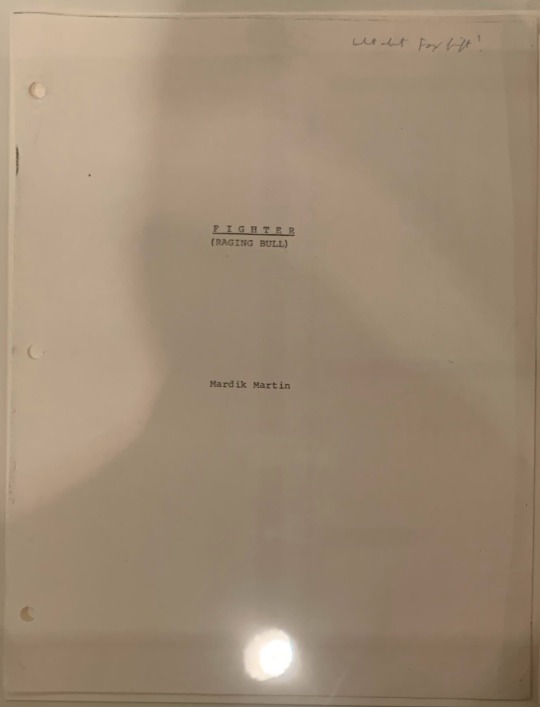
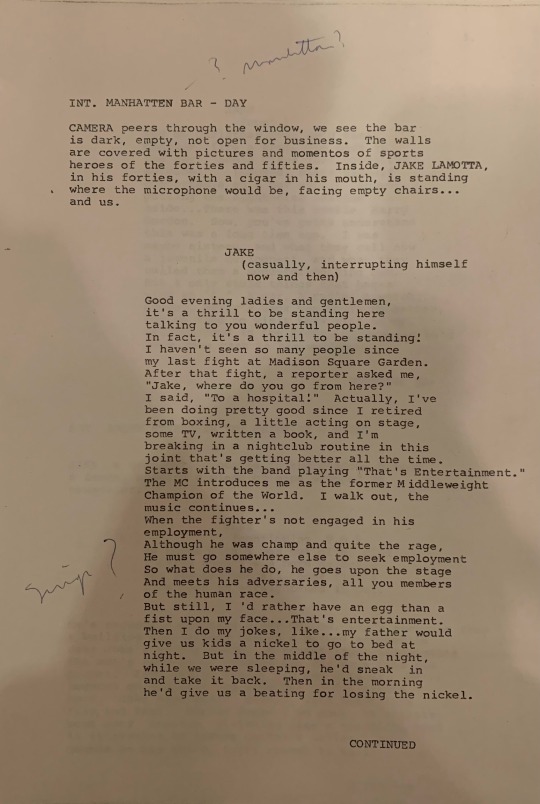
“Fighter (Raging Bull) script by Mardik Martin, ca. 1976
Robert De Niro Papers
125.1”
#robert de niro#robert de niro archives#robert de niro hrc#hrc archives#harry ransom center#ut austin#films#film history#scripts/notes
2 notes
·
View notes
Photo
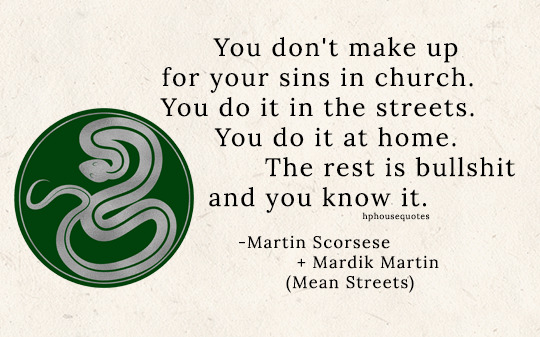
SLYTHERIN: "You don't make up for your sins in church. You do it in the streets. You do it at home. The rest is bullshit and you know it." --Martin Scorsese + Mardik Martin (Mean Streets)
485 notes
·
View notes
Photo
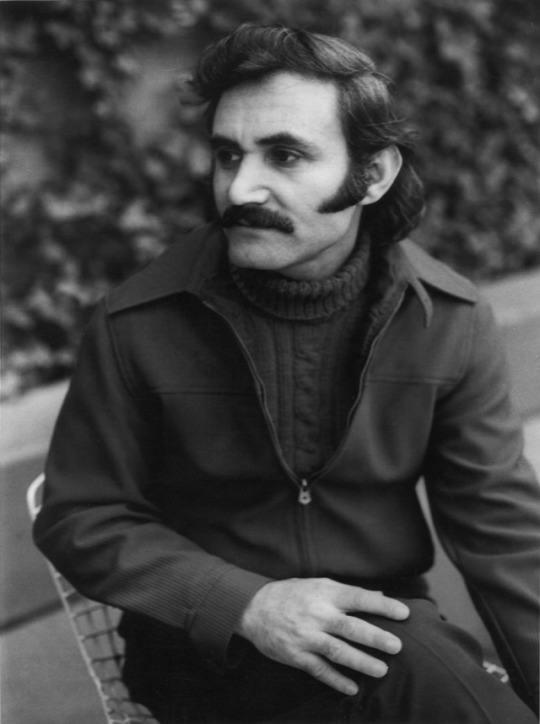
Mardik Martin, September 16, 1936 – September 11, 2019.
7 notes
·
View notes
Photo
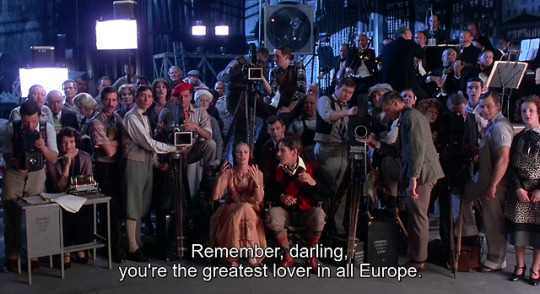
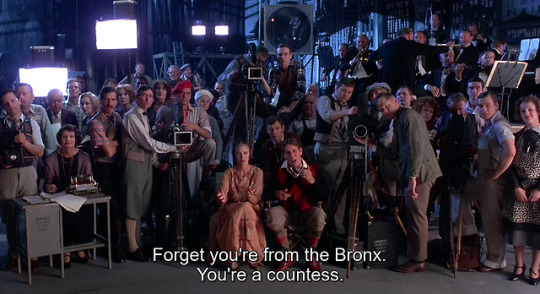
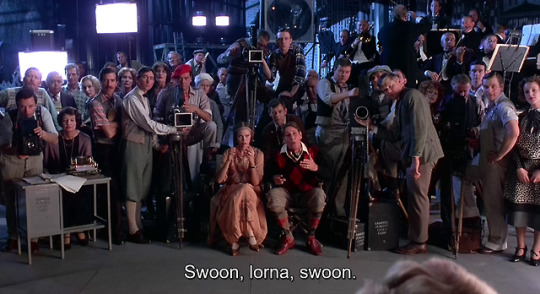

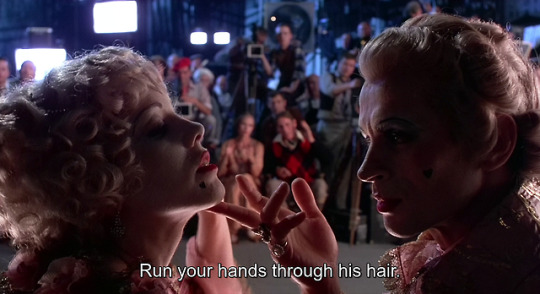
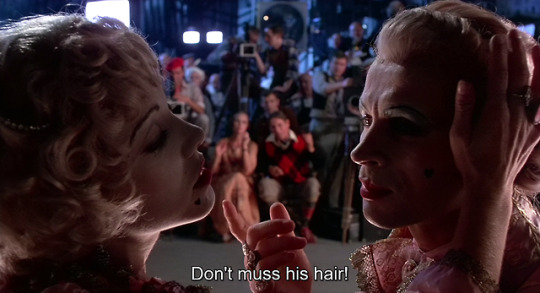
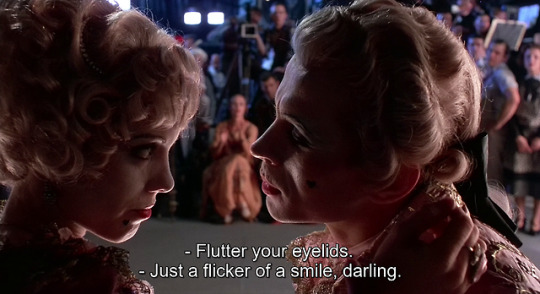
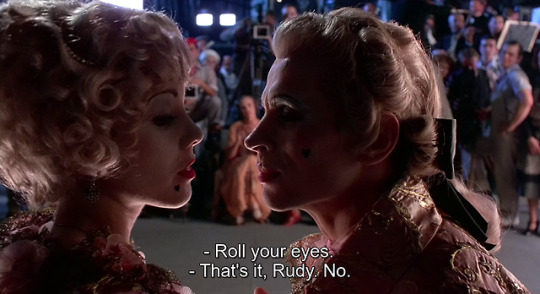
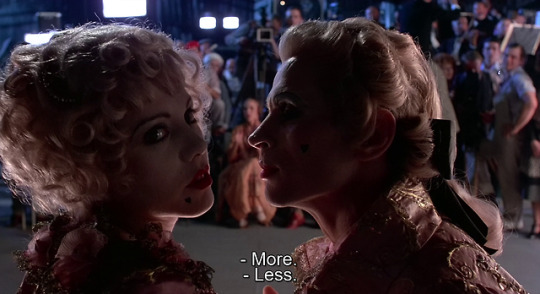
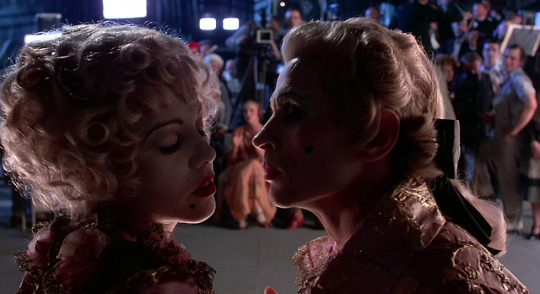
Valentino (Ken Russell, 1977).
#valentino (1977)#ken russell#valentino#mardik martin#brad steiger#chaw mank#rudolf nureyev#rudolph valentino#leslie caron#alla nazimova#peter suschitzky#stuart baird#philip harrison#shirley russell
28 notes
·
View notes
Photo
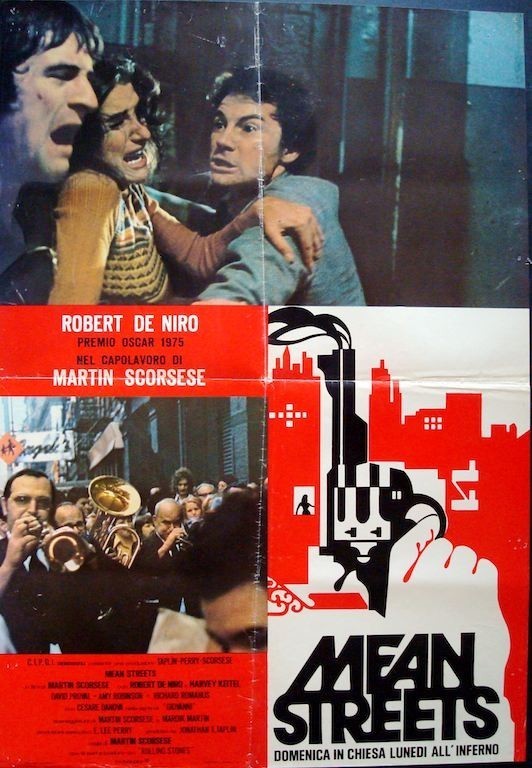
Movie #39 of 2019: Mean Streets
#39#english#italian#mardik martin#martin scorsese#1973#mean streets#crime#thriller#drama#35mm#kent l. wakeford#sidney levin
4 notes
·
View notes
Text
Italianamerican (1974)
Italianamerican (1974)
MARTIN SCORSESE
Bil’s rating (out of 5): BBBB
USA, 1974. National Communications Foundation. Screenplay by Lawrence D. Cohen, Mardik Martin. Cinematography by Alec Hirschfield. Produced by Elaine Attias, Saul Rubin. Film Editing by Bert Lovitt.
In one of his most personal and endearing works, filmmaker Martin Scorsese interviews his parents for just under an hour, asking them to relate their…
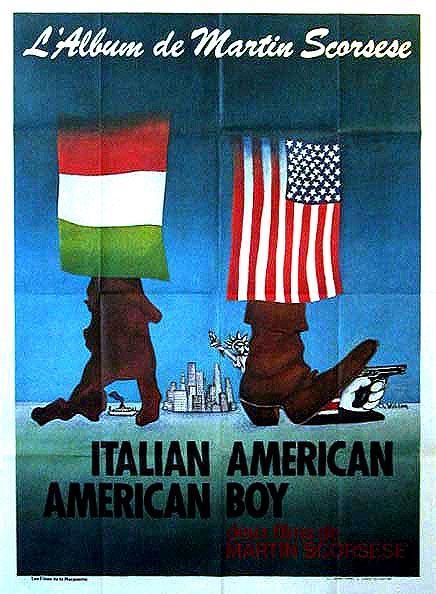
View On WordPress
#Alec Hirschfield#Bert Lovitt#Catherine Scorsese#Charles Scorsese#Criterion Collection#Elaine Attias#Lawrence D. Cohen#Mardik Martin#Martin Scorsese#National Communications Foundation#Saul Rubin
0 notes
Text
RAGING BULL Review - ****
RAGING BULL Review – ****
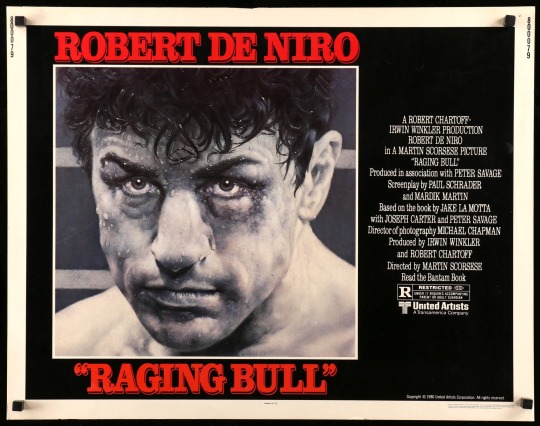
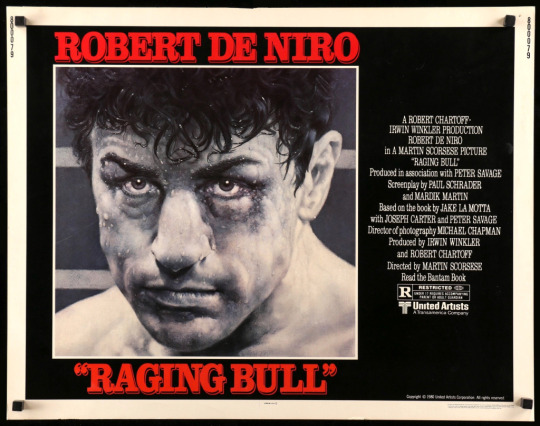
And though I’m no Olivier,
if he fought Sugar Ray,
he would say that the ring
ain’t the thing,
it’s the play.
So give me a stage
where this bull here can rage,
and though I can fight,
I’d much rather recite;
that’s entertainment.
After 40 years of continuous praise, it’s fair to ask what one can say about Raging Bullthat hasn’t been said already. Rewatching it this time, I found myself appreciating it…
View On WordPress
#80s films#biopic#boxing#Cathy Moriarty#Film Reviews#Jake LaMotta#Joe Pesci#Mardik Martin#martin scorsese#Michael Chapman#Paul Schrader#Raging Bull#Robert De Niro#thelma schoonmaker#tw domestic abuse#tw violence
0 notes
Text
Mean Streets - Arka Sokaklar
Mean Streets – Arka Sokaklar
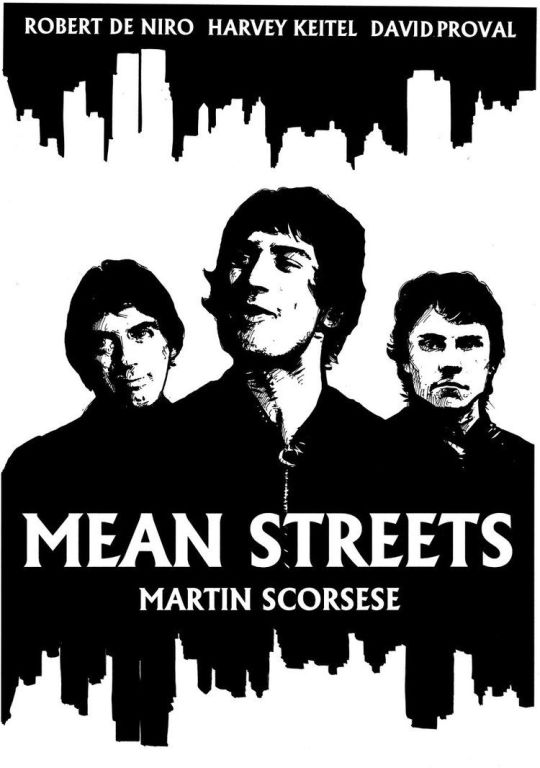
Mean Streets – Arka Sokaklar
Gangster filmlerinden kült film olmaz. İsteyen yönetmen, oyuncu hatta sinema yazarı kendisini istediği kadar yırtsın bu eşyanın tabiatına aykırı bir kavramdır. Zira gangsterler yaratmak, umut olmak, yol göstermek, aydınlatmak, yaraları sarmak için yokturlar. Aksine hastalıklı toplumun daha da hastalıklı bireyleri olarak kısa yoldan beleşe konmak için vardırlar. Bunun…
View On WordPress
#Amy Robinson#Cesare Danova#David Proval#Film eleştirileri#Filmler#George Memmoli#Harry Northup#Harvey Keitel#Hexenkessel#Jeannie Bell#Kino#Lenny Scaletta#Mardik Martin#Martin Scorsese#Mean Streets - Arka Sokaklar#Mean Streets 1973#Murray Moston#Richard Romanus#Robert de Niro#Süleyman Deveci#Sinema#Sinema klasikleri#Victor Argo
0 notes
Link
RIP Mardik Martin 1936-2019
Screenwriter Mardik Martin, who frequently collaborated with Martin Scorsese has died at 82. He wrote several films that Scorsese directed notably Mean Streets and Raging Bull, as well as the treatment for the documentary The Last Waltz. Tremendous talent!
The link above is the obit from Deadline.
0 notes